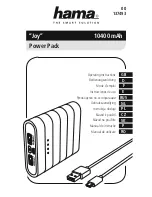
Visit www.princessauto.com for more information
13
8507667
V 3.05
Mini Milling Machine
FACE MILLING
1. According to the Installation And Removal Of The Tapered Shank section, install the appropriate accessory
and tighten securely.
2. Select the appropriate speed level.
CAUTION! Do Not change the High / Low speed setting while the spindle is running.
3. Use a vice or clamps to secure the work piece on the working table.
4. Adjust the working table (longitudinal axis Y) and the saddle seat (cross axis X) to the desired position.
5. Loosen the limit block handle and adjust the blocks to the desired position.
NOTE:
Do not allow the tool to contact the work piece yet.
6. Remove the adjusting tools and all obstacles that may be around the machine.
7. Turn the hand wheel of the working table (Y axis) and the saddle seat (X axis) to do face milling.
8. Once you have completed the task, turn the power off and raise the spindle to the upper position.
9. Release the work piece, taking care not to allow the work piece to fall.
10. Blow out dust and debris from the machine with compressed air. If compressed air is not available, clean
the machine with a soft brush or clean cloth.
DRILLING OR MILLING SPEED
Before any operation, select the correct spindle speed.
The operating speed range for working is 0 to 2,500 RPM. For the most part, the correct speed may be determined
by the size of the working face and the material. Generally, you can use a higher speed for softer material or
smaller holes. Use a lower speed for harder material or bigger holes. However, do not drill too fast
(greater than 2,300 RPM) if your work piece is wood; you may burn it. For metal work pieces, the speed can be
from 0 to 2,500 RPM.
MAINTENANCE
NOTE:
Stop the unit and remove it from its power source before performing any inspection or maintenance.
1. Inspect each operating part to ensure that it is properly lubricated.
2. Examine each component to confirm that no parts have become loosened.
3. Clean the tool after each use and lubricate the moving parts to prevent rust.
4. Check the spindle to make sure that it spins properly.
5. Examine the overall circuit. Check the contact points, conductors, plugs and switches to ensure that they
are working properly.
MAINTENANCE OF THE CUTTER
NOTE:
Stop the unit and remove it from its power source before performing any inspection or maintenance.
1. Wear protective gloves or use a rag when handling the cutter to prevent personal injury.
2. The cutter should be stored in a protective case when not in use to maintain the sharpness of the blade.
3. Pay attention to the rotation of the cutter. Improper rotation can lead to dulling the blade or even damage
to the blade.
NOTE:
If you are uncertain which direction the spindle is rotating, turn the tool off and as the spindle slows
down, the direction of rotation can be observed.
4. Sharpen the cutter as soon as it gets dull. A dull cutter is not only difficult to do milling work but also
increases the chances of damaging the blade.
5. Keep the tapered shank clean.














































